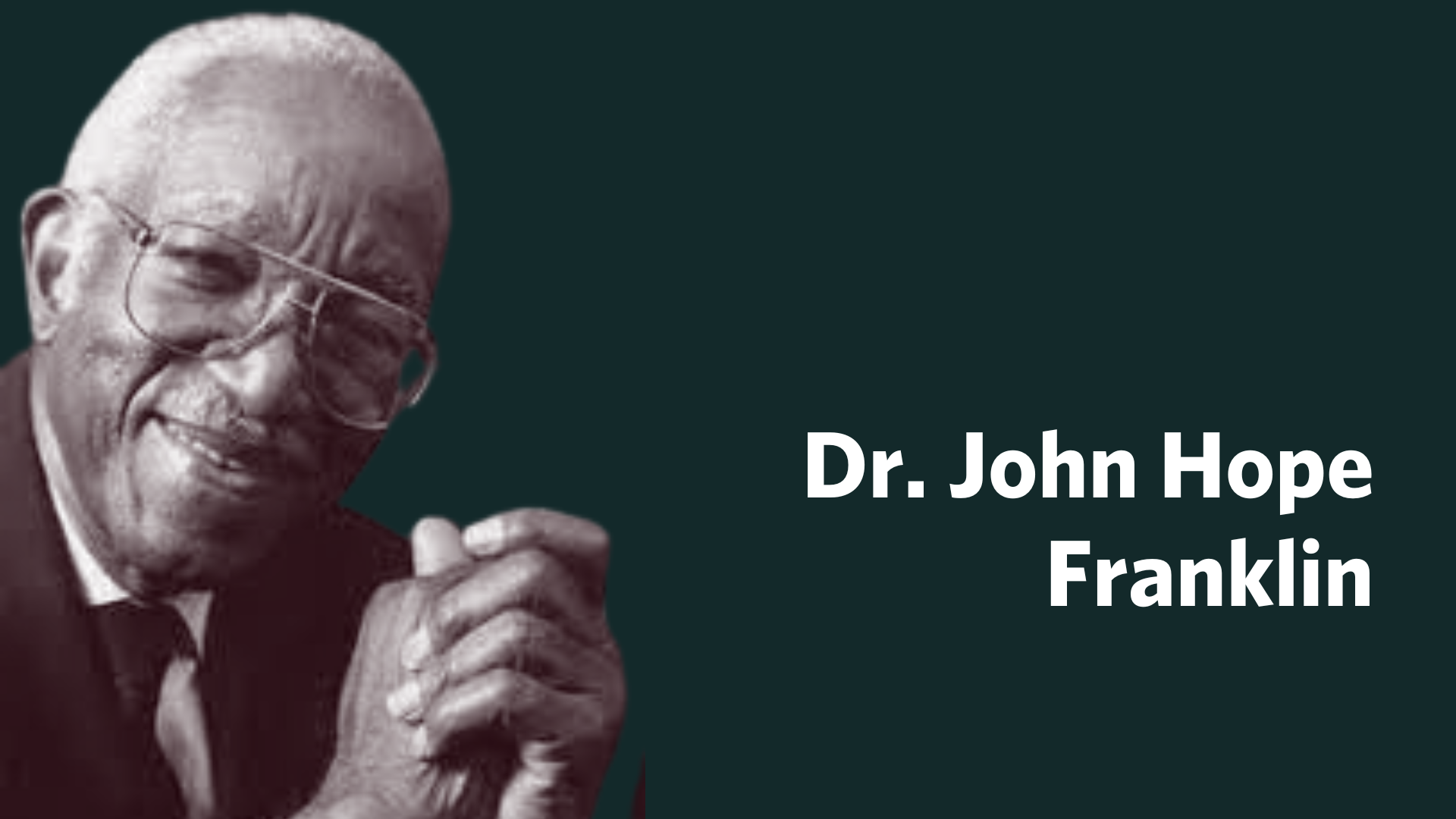| John Hope Franklin: Illuminating the Past, Inspiring the Future |

As we explore the diverse landscape of Black History Month, we delve into a figure whose dedication to education and scholarship transformed our understanding of history and paved the way for a more inclusive future: John Hope Franklin (1915 – 2009). More than just a renowned historian, Franklin was a visionary educator and catalyst for change, leaving an indelible mark on the academic world and our collective consciousness.
From Tulsa to Talented Tenth
Born in 1915, Franklin witnessed the Tulsa race riots firsthand, shaping his lifelong commitment to racial equality and historical accuracy. He rose above the limitations of segregated education, graduating magna cum laude from Fisk University and earning his Ph.D. from Harvard – one of the few Black students at the time. This pioneering spirit fueled his determination to shine a light on the often-ignored African American narrative.
A National Impact
In 1947, Franklin published his seminal work, "From Slavery to Freedom: A History of African Americans." This groundbreaking text reframed American history, presenting a comprehensive and nuanced account of Black experiences from slavery to the civil rights movement. It became a national bestseller, shattering stereotypes and raising the visibility of Black scholarship within mainstream academia.
Founding Father of Black Studies
Recognizing the need for dedicated academic spaces to explore Black history and culture, Franklin co-founded the Afro-American Studies department at Harvard in 1968. This pioneering step sparked a nationwide movement, leading to the establishment of Black Studies programs across countless universities. These programs fostered critical thinking, challenged discriminatory narratives, and empowered generations of Black students and scholars.
Leadership Development Beyond Textbooks
Franklin's influence extended beyond his publications. He served as president of prestigious organizations like the American Historical Association and the Organization of American Historians, using his platform to mentor young scholars and advocate for diversity in academia. He understood that leadership development wasn't just about academic prowess, but also about fostering empathy, cultural understanding, and a commitment to social justice.
Franklin's Legacy
A Guiding Light for Talent Development: Today, John Hope Franklin's legacy echoes in the diverse tapestry of academia and talent development. His unwavering dedication to education, his championing of inclusive scholarship, and his emphasis on leadership grounded in social responsibility offer valuable lessons for building a more equitable future:
-
Promote diverse narratives and perspectives within education and talent development programs.
-
Empower marginalized voices and cultivate inclusive learning environments.
-
Integrate critical thinking and social justice principles into leadership development.
-
Recognize the importance of historical context and its link to contemporary challenges.
John Hope Franklin illuminated the past not just to remember, but to inspire. His commitment to truth, his relentless pursuit of equity, and his dedication to nurturing Black excellence remain a beacon for educators, scholars, and leaders as we strive to build a future where talent knows no color or boundary.
Let us honor John Hope Franklin's legacy not just in words, but in action. Let his story inspire us to continue his fight for inclusivity, understanding, and a world where knowledge empowers all.